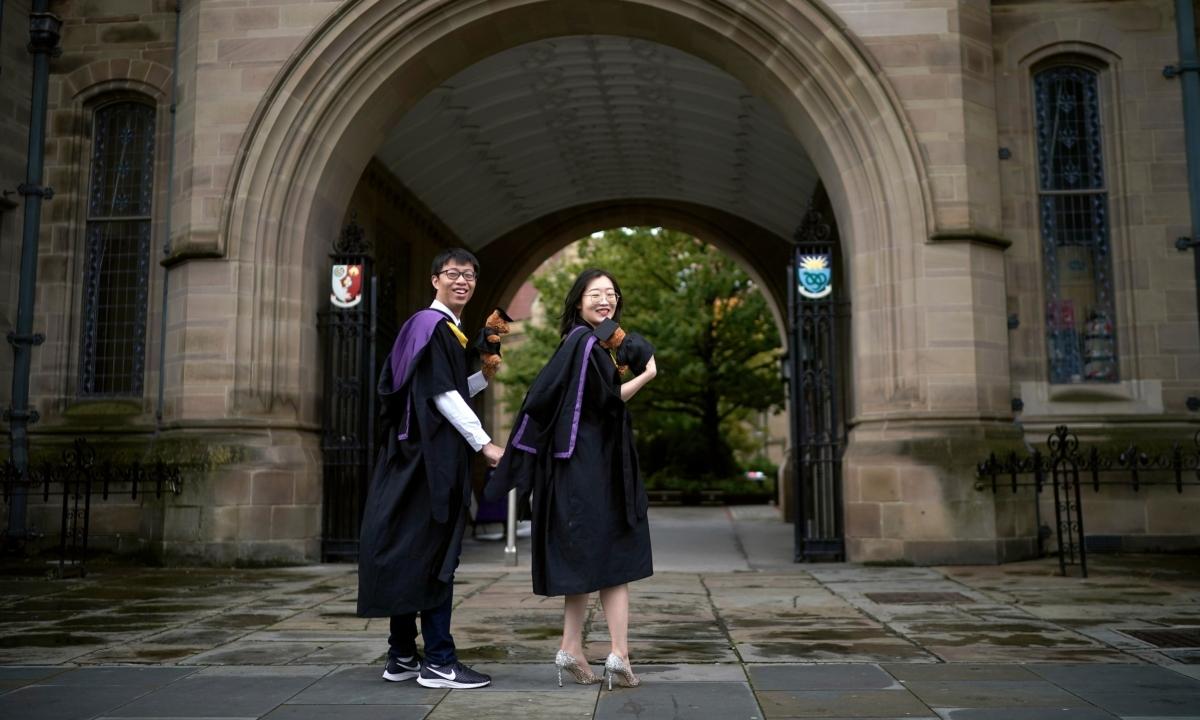The number of students studying for UK university degrees abroad has risen to nearly 600,000, according to a report by the Higher Education Policy Institute (HEPI) released on Friday.
Research shows that the number of students in UK transnational education (TNE) has risen every year between 2019 and 2023.
The TNE model enables international students to earn UK degrees without physically studying in the UK through distance learning, overseas branch campuses, and agreements with universities overseas.
Around 16 percent of students in UK higher education are now educated abroad, the report, sponsored by the University of Reading, found.
Out of 576,705 TNE students in 2022–2023, around 25 percent were distance learners and 7 percent were at overseas branch campuses.
Financial Sustainability
The report highlighted TNE as a key strategy for UK universities to bolster financial sustainability, particularly amid concerns over declining numbers of international students coming to the UK.The higher education regulator said that many universities will need to make significant changes to their funding arrangements in the near future to avoid closure.
The watchdog estimated that by 2026–2027 nearly two-thirds of institutions will be in deficit and 40 percent will face low liquidity at the end of 2024. The worst case scenario will see over 80 percent in deficit and nearly three-quarters facing low levels of liquidity.
International students typically pay higher fees than students from England, whose maximum tuition fees have been capped at £9,250 per year for full-time undergraduate courses.
The OfS noted the increasing reliance of the higher education sector on fee income from international students, especially when recruitment is predominantly from a single country.
Transparency
The paper urged the OfS to improve public information and ensure the quality of TNE. It suggested universities use more external surveys to gather feedback from TNE students.The report pointed out a lack of data on student success rates, degree outcomes, and job prospects for TNE, emphasising the need for transparency.
Nick Hillman, director of HEPI, said over half a million students study UK qualifications abroad.
“It is vitally important both for the students and for our wider reputation that qualifications delivered overseas are of a similar quality to those delivered here in the UK, with robust feedback loops and trustworthy regulation,” he added.

Caroline Baylon, international pro-vice-chancellor at the University of Reading, emphasised that UK degrees delivered abroad should offer the same quality and experience as those in the UK.
Author of the report, David Carter, said that better sharing of insights within the sector could improve accountability and strengthen the UK’s reputation.
It comes as Nishat Riaz from the British Council suggested that “for too long” the TNE success has been measured by enrolment numbers and prestige. He called for a student-centred approach that prioritises equitable access, quality, and cultural exchange.
Immigration Rules
While some international students prefer studying directly in the UK, the TNE route offers a number of benefits, given the rising cost of living in Britain and changes to immigration rules.In the period between January and March, the number of foreign student dependent visas dropped by around 80 percent compared to the same quarter in 2023.
Delivering a statement in July, Education Secretary Bridget Phillipson said that “for too long international students have been treated as political footballs, not valued guests.” She reaffirmed the government’s stance that international students are welcome in the UK.







